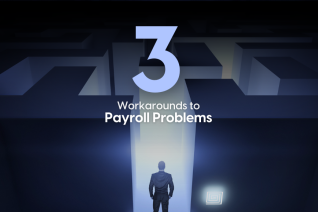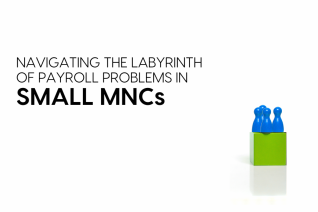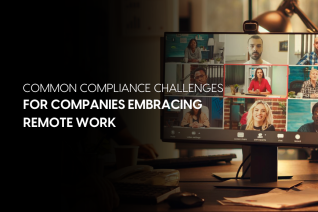Country Spotlight: Employer of Record in South Africa

With one of the six floral kingdoms in the world and over 9,000 plant species that only grow on its land, South Africa has remarkable natural diversity. This diversity also mirrors the country's cultural variety, which gives it the apt nickname of the rainbow nation.
With its rich history, culture, and natural beauty attracting millions of tourists every year, South Africa is the most developed and industrialized economy in Africa, along with being a gateway to the rest of the continent.
Despite having a strategic location at the southern tip of Africa, the country faces some of the most complex regulatory issues.
Especially for companies looking to expand their businesses in South Africa, the challenges can be better dealt with if equipped with prior knowledge of the regulations circulating in the country. Here are some crucial factors to know stretching internationally to South Africa:
Nurturing the Talent
For a country with such immense diversity and opportunities, it poses its own fascinating challenges that affect its hiring process and labor market.
Especially since COVID-19, South Africa has experienced a severe economic downturn due to the lockdowns and restrictions imposed to contain the spread of the virus.
According to Statistics South Africa, the unemployment rate reached 34.4% in the second quarter of 2021, the highest since 2008.
The country follows a unique approach that affects both employers and job seekers. One of which famously falls under BEE and EE categories.
How do BEE AND EE play a role in employment?
One of the most distinctive features of hiring in South Africa is the role of Broad-Based Black Economic Empowerment (BEE) and Employment Equity (EE). These policies aim to redress the legacy of apartheid and promote the economic inclusion and empowerment of historically disadvantaged groups, such as black people, women, people with disabilities, and youth.
-
BEE and EE require employers to implement measures to achieve a more representative and diverse workforce at all levels of the organization. This includes setting targets for the recruitment, promotion, training, and retention of designated groups, as well as reporting on their progress. Employers who comply with BEE and EE can benefit from preferential treatment in government contracts, tax incentives, and access to finance.
-
For job seekers, BEE and EE can create opportunities to enter the labor market and advance their careers. However, they can also create challenges, such as discrimination, resentment, tokenism, or reverse racism. Some job seekers may feel that they are hired or overlooked based on their race or gender rather than their skills or qualifications.
ALSO READ| Country Spotlight: Payroll in South Africa
When the Ties are Cut Off
Terminating an employment contract is a serious and sensitive matter; therefore, it is essential to understand its legal and practical aspects.
According to the Labour Relations Act 66 of 1995 (LRA), there are three recognized fairgrounds for termination of employment:
- Misconduct: This refers to the employee's behavior or conduct that breaches the rules or standards of the workplace, such as dishonesty, theft, insubordination, violence, harassment, or negligence.
- Incapacity: This refers to the employee's inability or failure to perform their duties or meet the expectations of the employer due to reasons such as poor work performance, ill health, injury, or incompatibility.
- Operational requirements: This refers to the employer's economic or organizational needs that justify the reduction or restructuring of the workforce, such as redundancy, retrenchment, downsizing, or outsourcing.
Another notable part of the termination process in South Africa is the unfair dismissals.
In South Africa, unfair dismissal is regulated by chapter VIII of the LRA, which provides that every employee has the right not to be unfairly dismissed. An unfair dismissal occurs when:
- The employer does not have a fair reason for dismissing an employee;
- The employer does not follow a fair procedure before dismissing an employee;
- The employer dismisses an employee for an automatically unfair reason, such as discrimination, trade union activity, pregnancy, or participation in lawful industrial action.
These factors affect both employers and employees and require them to comply with various legal requirements and procedures when terminating an employment contract. By understanding these differences, employers and employees can avoid potential disputes and liabilities arising from termination.
Planting the seeds of the Future of Work
Clearly, the hiring and termination process in South Africa can be daunting for foreign businesses wanting to expand into this dynamic market. However, using an EOR service can make it easier and faster by taking care of all legal and administrative aspects while allowing companies to focus on their mission.
Neeyamo's Global Work was created considering the vision of companies that aspire to expand internationally seamlessly. With coverage that spans over 160 countries, it accommodates both short-term and long-term engagements. An EOR provider is an investment that is gaining increasing importance thanks to its potential to minimize risks and liabilities, allowing companies to concentrate fully on their primary business operations.
Another challenging aspect that concerns companies is the timely and accurate payroll delivery to their employees. Neeyamo's Global Payroll is a single integration-ready global platform that focuses on hyperlocal delivery methods regardless of the location of employees (primary geographies, the long-tail region, remote or internationally located).
Would you rather talk to an expert? We would love to hear from you. You can either write to irene.jones@neeyamo.com or reach out here.
Últimos Recursos
Manténgase informado con las últimas actualizaciones
Si tiene curiosidad y sed de conocimientos relacionados con el universo de recursos humanos, nómina y EOR, no deje de suscribirse a nuestros recursos.
















